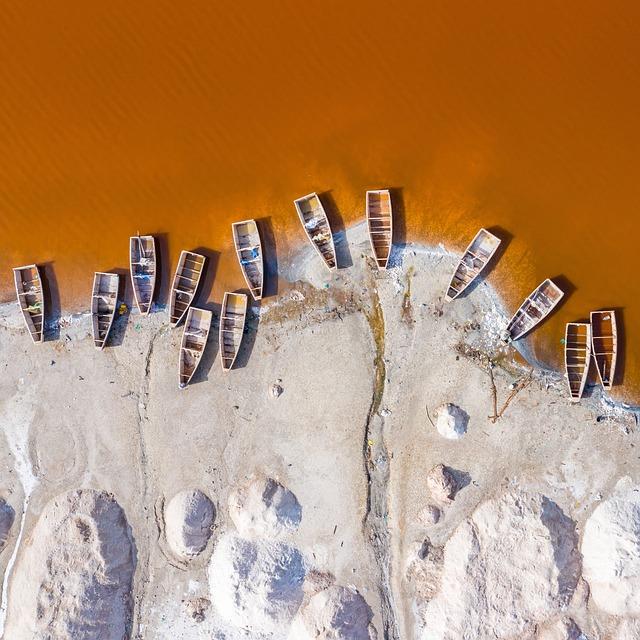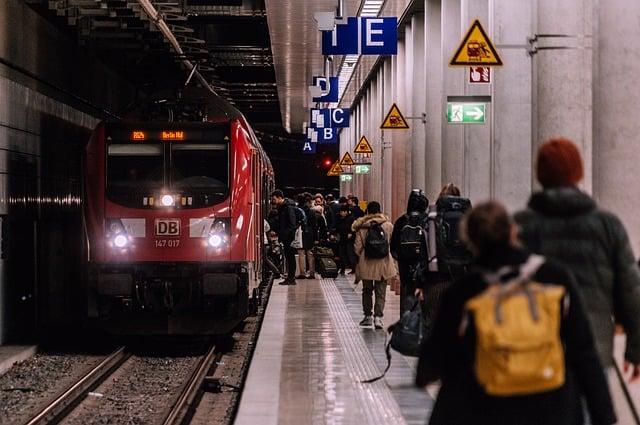In a challenging geopolitical landscape marked by a series of military coups, the Economic Community of West African States (ECOWAS) faces a critical moment in its history. As the bloc grapples with restoring stability and unity among its member states, attention turns to SenegalŌĆÖs president, a leader who was not yet born when ECOWAS was established in 1975. This unique perspective may serve as both an asset and a challenge as he endeavors to reinvigorate a regional organization that has seen notable strain in recent years. With a series of member nations undergoing political upheaval, the mandate to bridge divides and foster collaboration has never been more pressing.This article delves into the complex dynamics at play within ECOWAS and the pivotal role SenegalŌĆÖs leadership could play in reshaping a bloc at a crossroads.
SenegalŌĆÖs New Leadership in a Changing ECOWAS Landscape
Senegal is embarking on a pivotal journey under the leadership of a president whose very existence precedes the foundation of the Economic Community of West African States (ECOWAS). As the bloc grapples with the specter of political instability fueled by repeated coups, SenegalŌĆÖs new leader faces the immense task of not only maintaining regional stability but also healing rifts that threaten the integrity of ECOWAS. With several member states undergoing political upheavals, the challenge lies in fostering collaboration and dialog among leaders, aiming to address the root causes of these disruptions while reinforcing democratic institutions.
The new administration has laid out several strategic initiatives aimed at unifying the bloc. Key focal points include:
- Dialogue Platforms: Establishing communication channels for leaders to openly discuss political concerns and challenges.
- Strengthening Security Cooperation: Enhancing collaborative measures to combat extremism and cross-border crimes.
- promoting Economic Integration: Advocating for joint projects that boost economic ties among member states.
- Championing Democratic Norms: Encouraging adherence to democratic principles and peaceful transitions of power across the region.
These initiatives are crucial for Senegal’s leadership not only to regain trust among ECOWAS members but also to set a precedent for a resilient governance framework within the bloc. Success will be measured not just by immediate political stabilization but by the long-term establishment of a cohesive community dedicated to collaborative development and sustained peace.

Understanding ECOWAS: The Origins and Evolution of the Bloc
The Economic Community of West African States (ECOWAS) was established on May 28, 1975, in Lagos, Nigeria, with the primary aim of promoting economic integration and cooperation among its member states.It was born out of a recognition that the stability and prosperity of West African nations were interdependent. The founding treaty was signed by 15 countries that shared similar objectives, including enhancing collective economic growth, improving living conditions, and ensuring regional peace and stability.Over the years, ECOWAS has evolved beyond its initial economic focus to include political and social dimensions, addressing challenges like democracy, security, and human rights, as political instability threatened the region’s development.
Throughout its history, ECOWAS has faced numerous challenges, particularly military coups and political unrest in several member states, which have tested its cohesion and effectiveness. The bloc has had to adapt to the changing political landscape, implementing protocols aimed at maintaining peace and security, such as the Protocol on Non-Aggression and the Protocol on Conflict Prevention. While its achievements in fostering collaboration among member countries are commendable, the ongoing instability casts a shadow over its future. The calls for a reunification of the bloc, spearheaded by leaders like Senegal’s current president, reflect a growing understanding that lasting peace in West Africa relies not just on economic synergy but also on strong political will and commitment to democratic values across the region.
Challenges Faced by ECOWAS Amidst Political Instability
The Economic Community of West african States (ECOWAS) faces considerable challenges as it navigates the turbulent waters of political instability across the region. amid a backdrop of military coups and shifting governments, the organization’s authority and effectiveness have been called into question. Member states are increasingly divided on responses to such upheavals, leading to a fracturing of unity that is detrimental to regional stability. The recent leadership in Senegal has highlighted the necessity for cohesive action to reinforce democratic norms and restore confidence in ECOWAS as a stabilizing force.
Key obstacles confronting ECOWAS include:
- Fragmented Political Will: Member states often prioritize national interests over collective action, leading to inconsistent responses to political crises.
- Mutual Distrust: Historical grievances and differing political ideologies exacerbate tensions among member countries.
- Lack of Resources: Many countries within the bloc struggle with limited resources for conflict resolution and peacekeeping missions.
- engagement with Non-State Actors: The rise of influential non-governmental entities complicates traditional diplomatic approaches.
These factors collectively impede ECOWAS’s ability to project a unified stance, risking further political fragmentation and undermining the bloc’s long-term objectives.

The Role of Regional cooperation in Stabilizing West africa
the intricate tapestry of West African politics has long been defined by a history of conflict and collaboration. In recent years, the region has witnessed a surge in coups that have not only threatened the stability of individual nations but have also undermined the effectiveness of the Economic Community of West African States (ECOWAS). The enduring challenges faced by ECOWAS underscore a pressing need for regional cooperation that extends beyond mere diplomatic engagements. The proactive involvement of member states in addressing common threatsŌĆöranging from governance crises to economic instabilityŌĆöcan foster a more resilient framework for regional peace and progress.
Key aspects of regional cooperation include:
- joint Security Initiatives: Collaborative operations among member states to deal with insurgency and cross-border crime.
- Economic Integration: Strengthening trade ties to enhance economic interdependence,thereby reducing the likelihood of conflict.
- Crisis Response Mechanisms: Establishing rapid response teams to address sudden changes in political stability.
Through sustaining dialogue and mutual support,leaders like Senegal’s president face the critical challenge of reuniting a bloc fragmented by unrest. The commitment to shared governance principles and a unified front has the potential to not only restore confidence in ECOWAS but also nurture a sense of solidarity among member states.

Recommended Strategies for Reunification and Strengthening ECOWAS
In the wake of recent political upheavals that have shaken member states, there is a pressing need for a concerted approach to mend the fractures within the Economic Community of West African States. Initiatives aimed at fostering dialogue among member nations could act as a catalyst for reinvigorating trust and cooperation. Key strategies might include:
- Establishment of a mediation team: Comprising neutral parties, this team could facilitate constructive discussions among governments facing turmoil.
- Promotion of democracy and governance workshops: educational programs for political leaders can emphasize the importance of constitutional governance and civic engagement.
- Economic collaboration initiatives: Joint projects that spur trade and development can bind nations closer together, proving mutual benefits amid political differences.
Moreover, to reinforce the structural integrity of ECOWAS, member nations should explore avenues for institutional reform. This could include:
- Revamping the decision-making process: Streamlining how decisions are made could enhance responsiveness to crises.
- Creating rapid response teams: These teams would address conflicts or governance issues swiftly, ensuring that preventative measures are in place before situations escalate.
- public awareness campaigns: Raising awareness about the meaning of ECOWAS and its benefits can bolster public support for the bloc, which can, in turn, pressure governments to collaborate.
As Senegal’s leadership navigates these complex challenges, upholding the core values and goals of ECOWAS will be paramount for a stable and unified West African community.

future Prospects for Leadership and Governance in West Africa
The evolution of leadership and governance in West Africa faces significant challenges amid a landscape marked by political instability and social unrest. As the Economic Community of West African States (ECOWAS) grapples with the ripple effects of coups and governance crises, the need for cohesive leadership becomes more pressing. Senegal’s leader, despite his youth relative to the bloc’s history, symbolizes a new generation of political figures tasked with bridging divides and fostering unity in a fractured region. His leadership could pave the way for a renewed focus on democratic principles, economic integration, and collective security, which are paramount for enduring development and regional peace.
To address these challenges effectively, several key strategies must be prioritized:
- Strengthening Institutions: Enhancing the capacity and independence of regional institutions to uphold democratic norms.
- Promoting Dialogue: Establishing forums for open dialogue among member states to address mutual concerns and grievances.
- Encouraging Civil Society Involvement: involving grassroots organizations in governance processes to foster accountability and public engagement.
The future of leadership in West Africa will hinge on these initiatives, which not only aim to mitigate conflict but also cultivate a climate of trust and cooperation among nations. A unified approach could considerably bolster the effectiveness of ECOWAS in uniting member states towards common goals and reinforcing their commitment to peace and stability.

The Way Forward
SenegalŌĆÖs President Macky Sall steps into a pivotal role at a critical time for the Economic Community of West african States (ECOWAS). As the bloc confronts challenges stemming from recent coups in member states,SallŌĆÖs leadership may prove crucial in fostering dialogue and unity among its nations. While he may not have witnessed the founding of ECOWAS,his vision and actions could help shape the organizationŌĆÖs future trajectory. The upcoming summit will test not only SallŌĆÖs diplomatic skills but also the resilience of a regional body committed to maintaining stability and democratic governance in West Africa. as the world watches, the success of his efforts will be vital in redefining ECOWASŌĆÖs mission and reaffirming its commitment to the principles upon which it was established.







